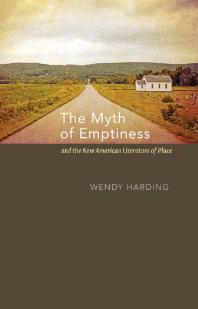Product desciption
The Myth Of Emptiness And The New American Literature Of Place Wendy Harding by Wendy Harding 9781609382926, 1609382927 instant download after payment.
From the moment the first English-speaking explorers and settlers arrived on the North American continent, many have described its various locations and environments as empty. Indeed, much of American national history and culture is bound up with the idea that parts of the landscape are empty and thus open for colonization, settlement, economic improvement, claim staking, taming, civilizing, cultivating, and the exploitation of resources. In turn, most Euro-American nonfiction written about the landscape has treated it either as an object to be acted upon by the author or an empty space, unspoiled by human contamination, to which the solitary individual goes to be refreshed and rejuvenated. In The Myth of Emptiness and the New American Literature of Place, Wendy Harding identifies an important recent development in the literature of place that corrects the misperceptions resulting from these tropes. Works by Rick Bass, Charles Bowden, Ellen Meloy, Jonathan Raban, Rebecca Solnit, and Robert Sullivan move away from the tradition of nature writing, with its emphasis on the solitary individual communing with nature in uninhabited places, to recognize the interactions of human and other-than-human presences in the land. In different ways, all six writers reveal a more historically complex relationship between Americans and their environments. In this new literature of place, writers revisit abandoned, threatened, or damaged sites that were once represented as devoid of human presence and dig deeper to reveal that they are in fact full of the signs of human activity. These writers are interested in the role of social, political, and cultural relationships and the traces they leave on the landscape. Throughout her exploration, Harding adopts a transdisciplinary perspective that draws on the theories of geographers, historians, sociologists, and philosophers to understand the reasons for the enduring perception of emptiness in the American landscape and how this new literature of place works with and against these ideas. She reminds us that by understanding and integrating human impacts into accounts of the landscape, we are better equipped to fully reckon with the natural and cultural crisis that engulfs all landscapes today.


